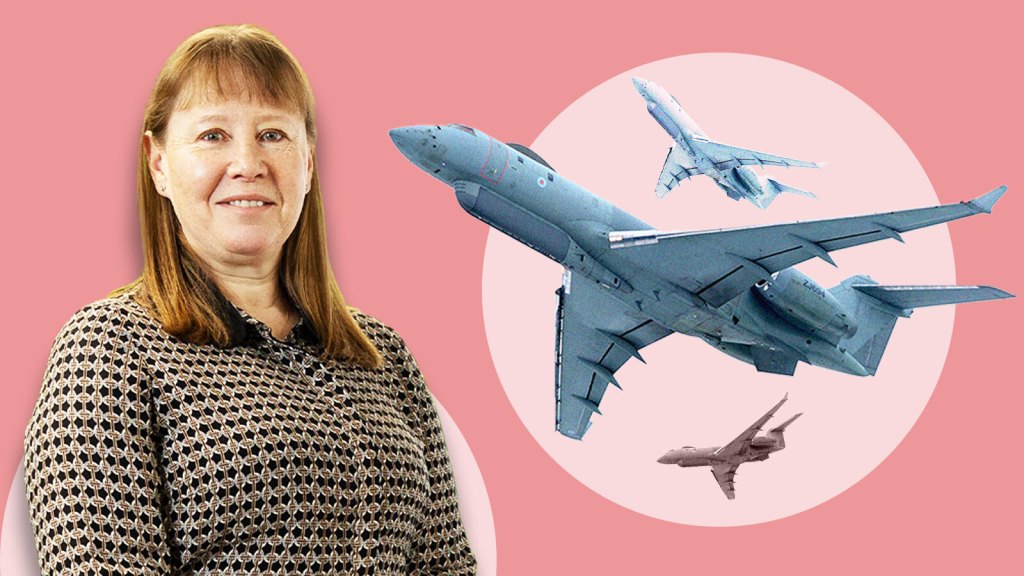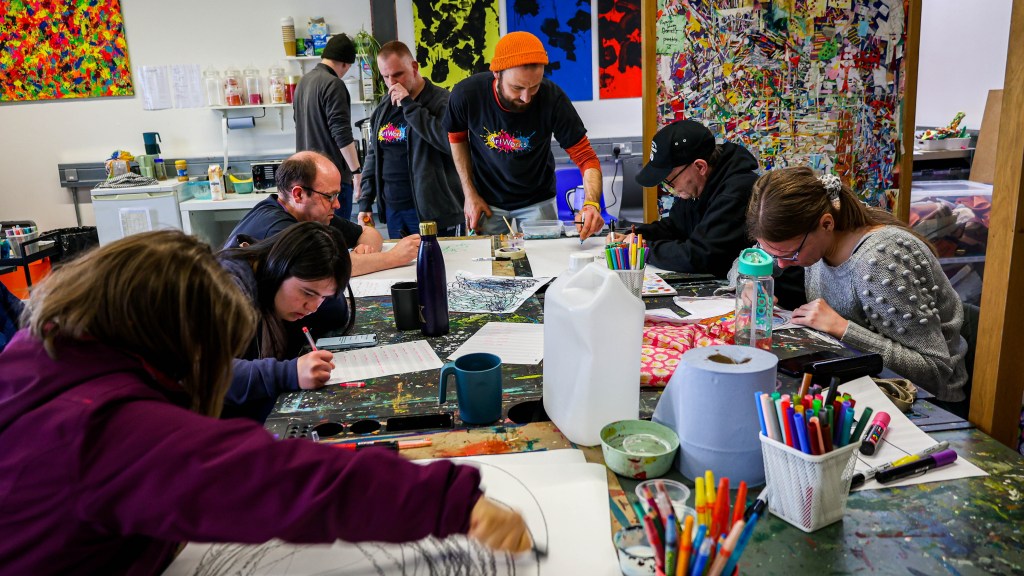From RAF Engineering to Leading Big Tech: Dawn Childs’ Inspiring Journey
Dawn Childs became a junior officer in the RAF at just 21, responsible for managing a team of 50 engineers shortly after graduating with a mechanical engineering degree from the University of Bath. Her impressive academic performance allowed her to complete her degree a year ahead of schedule, leading her to oversee the engineering efforts on 27 Hercules aircraft and the C-130 transport at RAF Lyneham.
After 23 years of service, Childs attained the rank of wing commander, ultimately becoming the commanding officer of the engineering division at RAF Waddington in Lincolnshire.
In this role, Childs ensured the operational readiness of Britain’s spy planes, including the now-retired E-3 Sentry, the Sentinel, various drone platforms, the Shadow aircraft, and the last operational Nimrod.

Reflecting on her time overseeing the Nimrod fleet, which faced intense scrutiny following a tragic crash in Afghanistan in 2006, Childs noted the challenges posed by safety and technical capabilities.
However, in 2012, after consistently ranking among the top five percent of officers, her promotion timeline halted. “For three consecutive years, I was ranked seventh on the promotion list but was overlooked in favor of six others,” she recounted. “The RAF operates strictly in a hierarchical manner, ranking everyone for promotions. When I approached a senior officer to ask for feedback, he told me there was no difference between me and the six men who had been promoted over me.” This led her to resign from the RAF.
Recently recognized with a damehood by the King for her contributions to engineering, Childs believes her career decisions were not influenced by gender bias. Originating from a working-class family—her father was a lorry driver and her mother a factory worker—she had always aspired to succeed in her field, choosing the RAF in part because it offered educational opportunities that were otherwise unavailable to her.
Following her departure from the military, Childs took her first civilian role at Gatwick Airport but felt underqualified for the head of engineering position she desired. Seeking to build her skill set, she accepted a lower-level role that involved managing essential infrastructure such as plumbing and heating systems.
Under the mentorship of Chris Woodroofe, then head of Gatwick’s engineering team, she quickly advanced to head of engineering and gained significant recognition for her contributions. Woodroofe praised Childs’ progress, calling her a true role model for future engineers.
Childs’ years in the RAF equipped her with expertise in crisis and change management, which proved crucial during her tenure at Gatwick, especially during a notorious baggage handling system failure in the summer of 2014 that led to extensive travel delays.
As her progress at Gatwick began to stagnate with no clear path to executive roles, she transitioned to Merlin Entertainments, where she was appointed director of engineering. This role came with the responsibility of improving safety and maintenance protocols following a serious incident at Alton Towers in 2015 that resulted in injuries to multiple guests.
Venturing into a new and unfamiliar industry, Childs adapted to the less regulated environment of theme park engineering, experiencing a stark contrast to the rigid processes of aviation. Despite challenges, she noted that her efforts at Merlin helped elevate industry standards.

One notable project she led was the operational longevity assessment of the London Eye, originally expected to have a ten-year lifespan. Through diligent analysis, her team established that it could function for an additional two decades with proper oversight.
Later, Childs took on a pivotal role as business change director at the National Grid, where she focused on enhancing grid capacity without extensive new construction—a complex challenge in the UK’s energy landscape.
Realizing she needed to seek new opportunities for advancement again, Childs targeted the tech industry, recognizing its growth potential. She found a position at Pure Data Centres, a start-up focused on developing major data center facilities for leading global technology firms. In 2021, she joined the company, becoming its chief executive in 2023, and played a critical role in overseeing new data center constructions in various locations.
In her personal time, Childs enjoys horseback riding and previously competed while in the RAF, even winning an award presented by Queen Elizabeth. Now, as a leader at Pure Data Centres, she advocates for greater inclusivity in engineering, emphasizing that fostering diverse perspectives benefits everyone involved.
“Right now, technical workplaces lack sufficient inclusivity,” she remarked. “This not only hinders women but also impedes overall progress, as an inclusive environment is essential for maximizing everyone’s potential.”




Post Comment